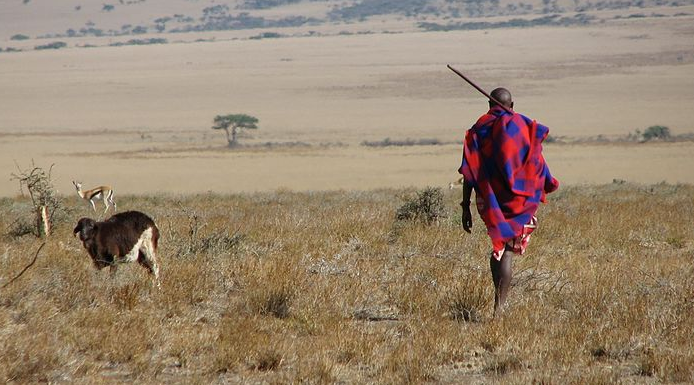“AGRA ignores the many successful agro-ecological and non-corporate approaches to agricultural development,� said Eric Holt-Gimenez of the Institute for Food and Development Policy, commonly known as Food First.
[Africa: Agriculture]
The introduction of the new Alliance for a Green Revolution in Africa (AGRA) will have adverse social, economic and agricultural implications on the livelihoods of smallholder farmers who make the bulk of people on the entire African continent, opponents contend.
Agronomists, agro-ecologists, environmentalists and development experts who met in Mali at a conference on Climate Change, Agriculture, Fisheries and Pastoralism in Africa urged African government to reject the project which got a $150 million infusion from the Rockefeller Foundation and the Bill and Melinda Gates Foundation. The plan is to improve African seed and distribution over the next five years.
“AGRA ignores the many successful agro-ecological and non-corporate approaches to agricultural development,” said Eric Holt-Gimenez of the Institute for Food and Development Policy, commonly known as Food First. “AGRA will undermine Africa’s food sovereignty and kill its cultural diversity and agriculture.”
AGRA was unveiled on September 12, 2006 by the Rockefeller and the Bill and Melinda Gates Foundations to improve seed hybrids, inorganic fertilizers, water management and agricultural extension services in Africa. The goal of this new agricultural project is to develop 100 new varieties in five years focusing on at least 10 different staple crops which include corn, cassava, sorghum and millet.
AGRA’s programs are administered through the Programs for a Green Revolution in Africa (ProGra) which got an initial grant of close to $30 million for selected countries in East, Southern and West Africa.
Mariam Mayet of the African Centre for Biosafety said the officers of AGRA and ProGRA will initially be key senior staff from the Rockefeller Foundation who will be based in Nairobi, Kenya. The first major initiative of ProGRA, she said, is the Program for Africa’s Seed System (PASS) intended to operate in 20 African countries. PASS will focus primarily on improvement and distribution of cop varieties, training of a new generation of plant breeders, seed distribution through seed companies, public community seed systems and public extension.
Provision of credit and training for small middle men agro-dealers for distribution of seeds, chemicals and fertilizers will also be done. Some agricultural experts say a “green revolution” merely include efforts aimed at increasing productivity of major food crops by incorporating scientific advances in plant breeding, development or expansion of supportive technologies and implementation of various reforms. They say large scale investment in irrigation, application of chemical fertilizers and other inputs and farm equipment all make up a “green revolution.”
Proponents of AGRA say Africa missed the first Green Revolution and hence the need to embrace this new alliance project. They feel strongly that Africa missed out on the Green Revolutions that took place in Asia and Latin America in the 1960s and 1970s. AGRA is joining other multilateral institutions, G8 and other donor countries, international foundations and multinationals to invest in African agriculture.
Yet African scientists, agricultural specialists, farmers’ organization and civil society activists are calling for a total rejection of AGRA as they cite several key concerns.
Opponents contend the growing influence of powerful multinationals such as Monsanto, Bayer, DuPont, Dow Chemical Company, BASF and Syngenta will lead to an extensive investment in genetically modified hybrids and “suicide” seeds which make farmers lose their indigenous and affordable seeds.
Monsanto, for example, controls 88 percent of global transgenic seed production. “There is not any other reality,” said Holt-Gimenez. “This new Green Revolution is meant to perpetuate slavery and dependence on the major US seed companies. A new AGRA project in Africa means a new market for their seed.”
“These multinationals are only speaking about profits and poisons. They are not speaking about the culture and needs of the Global South farmers,” he said. “The wisdom of all farmers in the Global South and indigenous communities is not taken into account. They are promoting mono-cropping at the expense of promoting agro-biodiversity,” he added.
Added Renato T Salazar, a South East Asia Regional Initiative for Community Empowerment (SEARICE) senior fellow:
“We must come out strongly and inform the political side and farmers about the badness of AGRA in Africa. The Green Revolutions that were implemented in Asia in the 1960s and 1970s had disastrous effects.”
Opponents say beyond the yield gains from Green Revolution projects, there are many costs –economic. Agricultural and social. The use of large amounts of water, fertilizers and chemicals impoverishes the soil leaving it less fertile and heavily polluted. Apart from health hazards, there are also human health implications.
The biodiversity kept by farmers for ages is lost and this forces farmers to depend heavily on pesticides and seed supplied by multinationals. “The profound cultural and economic changes wrought by the Green Revolution of the 1960s and 1970s produced a massive rural exodus and with it, a profound loss of traditional knowledge and skills,” Grain, a Food First publication reported.
“The Green Revolution is based on a scientific reductionism, which has resulted in monocultures, the use of chemicals, fertilizers and inappropriate mechanization. This is alien to Africa’s peasant farming systems which pursues a more holistic approach to agriculture in which crops are combined with livestock, organic manure is used, soils are looked after and there is a deep respect for the wider environment.”
“The Green Revolution is a serious threat to the continent’s peasants, seeds and livelihoods,” said Diamantino Nhampossa of Mozambique’s National Peasants Union (UNAC) and Via Campensina in Africa. “Instead of recognizing the rich knowledge that peasant women and men have managed for millennia, the introduction of hybrid seeds and technological packages will further damage the peasants own production systems.”
Renowned Ethiopian geneticist Dr. Melaku Worede said: “There’s so much potential with seeds in Africa that is not being explored. It’s being undermined by outside solutions. Rather than the industrial agriculture model, we should support more holistic approaches to agriculture. Farmer-led programs tend to look at more than just yields. There are about raising productivity without losing biodiversity.”
Dr. Melaku Worede says: “We need to build from the strengths of the farmers. Our work shows that farmers are the best breeders and the best judges of new agricultural projects.”
Tsiko is The Black Star News’ Southern Africa correspondent based in Harare.
To comment or to subscribe to or advertise in New York’s leading Pan African weekly investigative newspaper, or to send us a news tip, please call (212) 481-7745 or send a note to [email protected]
Also visit out sister publications Harlem Business News www.harlembusinessnews.com and The Groove music magazine at www.thegroovemag.com
“Speaking Truth To Empower.”











